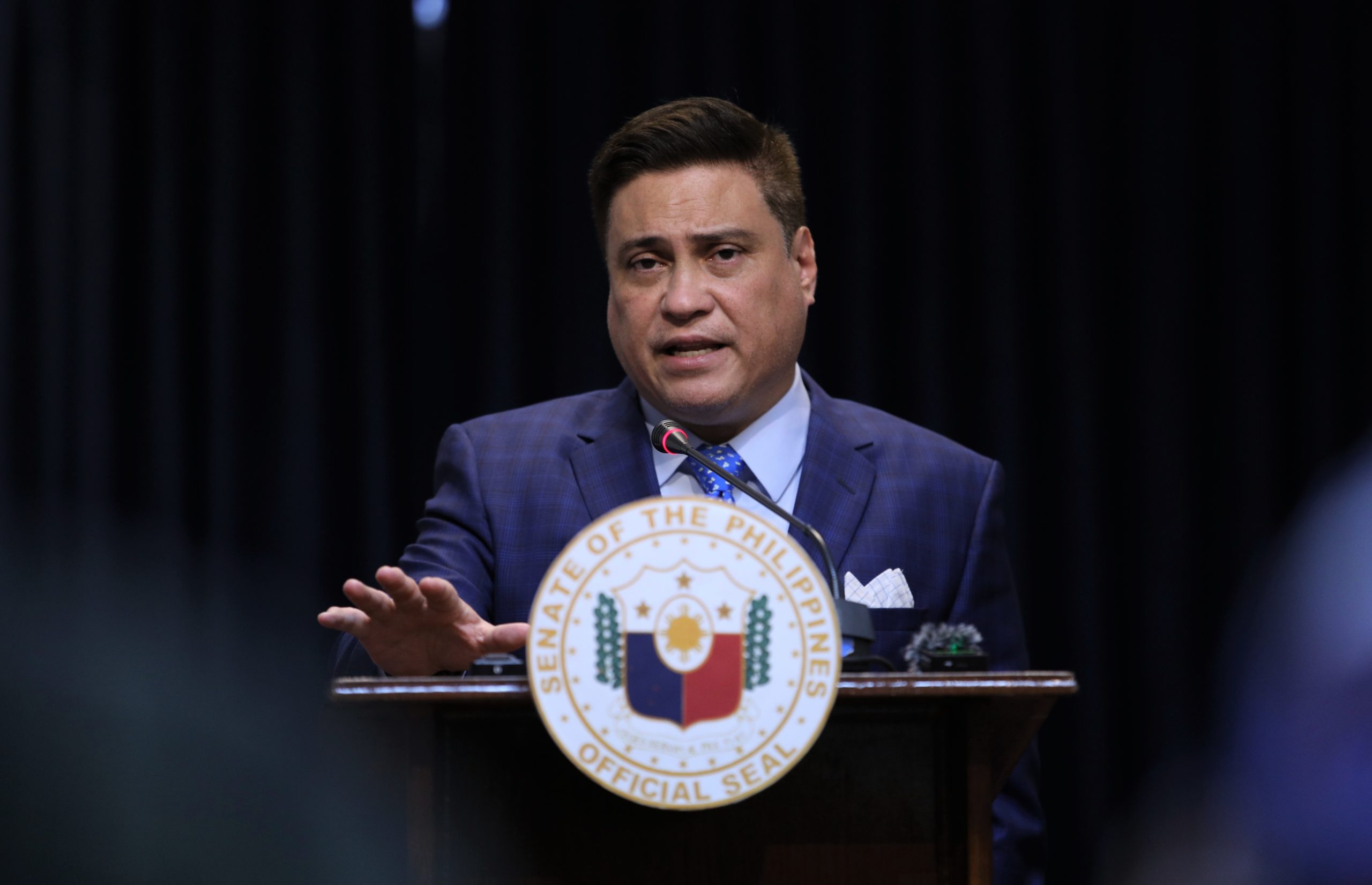PH decision on RCEP goes to Senate plenary

Senate President Juan Miguel “Migz” F. Zubiri —Senate PRIB
The Philippines is a step closer to finally joining the world’s biggest free-trade agreement after the committee report on the Regional Comprehensive Economic Partnership (RCEP) mustered the required signatures to bring it to the plenary meeting for discussion and final voting.
RCEP is a free-trade pact among the 10 members of the Association of Southeast Asian Nations (Asean), along with China, Japan, South Korea, Australia and New Zealand. This covers 50.4 percent and 67.3 percent of the Philippines’ export and import markets, respectively, and 58 percent of the country’s sources of foreign direct investments.
On Wednesday, Senate President Juan Miguel Zubiri gave the RCEP resolution its strongest pitch in an apparent attempt to convince his colleagues into supporting the measure, with Malacañang officials watching from the Senate gallery.
As of Wednesday evening, a total of 16 member-senators of the subcommittee on RCEP have already signed the committee report, which included Zubiri, Senate President Pro Tempore Loren Legarda, Senate Majority Leader Joel Villanueva, Senate Minority Leader Aquilino Pimentel III, and Senators Francis Tolentino, Robinhood Padilla, Mark Villar, Jinggoy Estrada, Lito Lapid, Ramon Revilla Jr., Sonny Angara, Sherwin Gatchalian, JV Ejercito, Nancy Binay, Ronald dela Rosa and Grace Poe.
Those who did not sign the committee report included Senators Imee Marcos, Cynthia Villar, Christopher Go, Francis Escudero and Risa Hontiveros.
The country’s participation in RCEP was signed by former President Duterte in September 2021, but to be official, it must be ratified by the Senate and will require the vote of two-thirds of all its members. The Philippines is the only country that has yet to ratify the agreement.
Opposition
A day after Zubiri endorsed the committee report on the RCEP ratification for plenary deliberations, Senator Marcos, chair of the Senate foreign relations committee, stood pat on her position not to sign the measure.
“I am trying to weigh the perceived benefits, which is indeed substantial, [as against] its impact on our farmers and small entrepreneurs. I am quantifying gains in electronics and garments [as against] agricultural damage from RCEP,” she said.
“[There is] really a lot to gain economically, but it will ravage the countryside and kill our farmers,” Marcos added.
Marcos expressed doubt over the promised benefits of RCEP, which, she said, might resemble the country’s experience after ratifying the free-trade agreements of the World Trade Organization (WTO).
“While RCEP again promises many benefits, we have seen how for many decades that have passed since we ratified the WTO convention in 1994, none of the supposed promises were ever fulfilled,” she said.
The Department of Trade and Industry (DTI) and the National Economic and Development Authority had previously clarified that only 15 agricultural commodities will see lower tariff rates, and that these account for just 1.9 percent of the total agricultural tariff lines or categories and only $132 million or 0.8 percent of total agricultural imports.
On the other hand, import tariffs for key Philippine exports will go down. According to the DTI, this is particularly important since a number of Philippine products will gain enhanced market access through lower tariffs, among them canned tuna, coconut water, coffee, fruit cocktail, fresh papaya and durian, ignition wiring sets, leather goods and bicycles.
Protection
Zubiri has also assured critics that the agriculture sector would be protected under the RCEP’s protection clause for the next 10 years.
“In other words, there will not be a free flow of goods for the next 10 years for agriculture, just to protect [the local agriculture sector],” Zubiri said.
In his sponsorship speech, Zubiri assured his colleagues that the RCEP agreement would not pose a threat to the country’s agriculture sector.
He said “highly sensitive agricultural products” such as rice, swine meat, poultry meat, potatoes, onions, garlic, cabbage, sugar, carrots were excluded from tariff liberalization under RCEP.
Zubiri sponsored the RCEP measure after it faced rough sailing in the Senate, with Marcos begging off from holding hearings and Legarda reluctantly accepting her role as chair of the newly created subcommittee for the trade pact.
Legarda held one hearing on Feb. 9, wherein she initially sided with the farmers’ groups who aired their apprehension that RCEP would allow the flooding of vegetable and meat imports and kill the local agricultural industry.